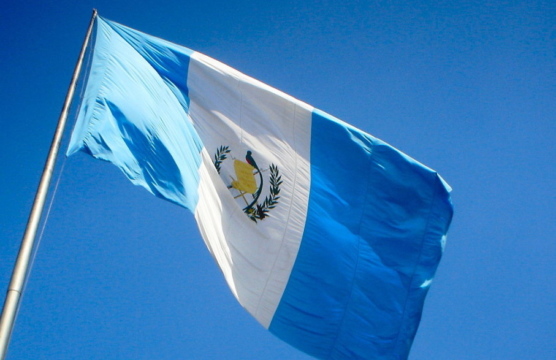
Violence & Impunity: Protecting Journalists in Colombia & Mexico
Violence against journalists is fortunately uncommon in many Latin American countries. But in some parts of the region it is of great concern.
On November 15, the Inter-American Dialogue hosted the event “Corruption, Internet Freedom, and Online Privacy in Latin America,” bringing together panelists to discuss a report recently published by the Inter-American Dialogue about freedom of expression and the concept of the “Right to be Forgotten.” The event’s panelists included Catalina Botero (Dean of the Faculty of Law at the Universidad de los Andes), Edison Lanza (Special Rapporteur for Freedom of Expression at the Inter-American Commission on Human Rights), José Luis Piñar (Professor of Administrative Law at the Universidad San Pablo CEU at Madrid and former director of the Data Protection Agency of Spain), Romina Mella (Investigative Reporter and Founding Member of IDL-Reporteros), and Michael Camilleri (Director of the Peter D. Bell Rule of Law Program at the Inter-American Dialogue). The event was moderated by Michael Shifter. The panel explored the concept of the “Right to be Forgotten” in the context of Latin America, considering the tension between privacy and transparency, and how European privacy standards can be adapted for the Americas.
Catalina Botero began the discussion by explaining the main points of the report. First, she highlighted that current European standards around the right to be forgotten are incompatible with freedom of speech in Latin America, noting that freedom of speech is crucial for democratic governance. The Internet has served as an important tool for fighting corruption and preserving human memory, and the standards of the right to be forgotten online in their current form create a problem that is bigger than the one they seek to fix. Presently, information considered “inadequate, irrelevant or no longer relevant, or excessive” may be delisted. However, under these broad criteria, relevant information may be taken out of the public sphere. Moreover, extraterritorial considerations further increase the risk of necessary information being removed, not just from search engines in one country, but from all search results. Botero emphasized the preference for freedom of expression that exists in all courts in Latin America, stating that in order for information to be delisted, it must be shown to cause substantive damage. In order to comply with Article 13 of the American Convention on Human Rights, it must be demonstrated that restricting a given piece of information is better for democracy than allowing it to exist unedited in the public sphere. Botero also stressed that the standard for delisting information must be clear given that, at the moment, there is some arbitrariness in determining what fits the criteria of being “inadequate, irrelevant or no longer relevant, or excessive.”
Next, Michael Camilleri reviewed the report’s four recommendations. First, the report recommends that the issue be faced head-on with open and rigorous debate informing the policies around the exclusion of information on the Internet. Second, information standards that already exist in the inter-American system – namely, Article 13 of the American Convention on Human Rights -- should be applied in order to reflect the liberal tradition of the Americas. While these standards may be restricted, they should only be restricted to the extent necessary and with a clear legal basis. Third, the report recommends initiating a transatlantic dialogue given the potential expansion of the right to be forgotten online to countries beyond the EU by the European Court of Justice. Lastly, alternate legal and technological solutions should be identified. While the right to be forgotten online is well-intentioned, it is a disproportionate solution to the problem of preserving privacy online and possible alternatives are needed.
Mr. Edison Lanza then offered his comments on the topic, stating that it is important that individuals not be allowed to “clean” their pasts in cases of corruption. In order to prevent a monopoly in access to information, information must be able to be searched for, found, and transmitted. It is essential to clarify the central terms in the debate – especially the goal of the right to be forgotten -- in order to ensure that the removal of content does not become a form of censorship, which is prohibited by Article 13. Lanza advocated for seeking solutions that pose less of a threat to the freedom of expression and information, noting that access to information is not just an issue of public interest, but also of journalistic and media freedom. Lanza also made the point that history is constituted by the narratives of the private lives of citizens at a given point in history. If these private narratives were to disappear, then what would become of history?
José Luis Piñar then discussed the European perspective on the right to be forgotten online, explaining that privacy and transparency are not incompatible, as both are imperative for self-determination. There must be a balance between privacy and transparency, however. Piñar pointed out that more than half of the requests to delist information are not granted, which demonstrates that information is not being restricted arbitrarily or indiscriminately. Piñar explained that the right to be forgotten in Europe is ultimately grounded in the desire to prevent governments from having information on private citizens that could be used in a harmful way. Ultimately, however, countries must engage in dialogue with each other in order to determine what the appropriate balance between privacy and transparency is for their region depending on its unique context.
Finally, Romina Mella discussed examples that illustrate considerations that should be taken into account when determining the standards around delisting information, including cases in Peru and Brazil. Mella made the point that politicians will likely use the right to be forgotten online as a “backdoor of censorship,” using it to challenge reporters that do not cover them favorably. If countries are not careful, the right to be forgotten online can turn into a perverse window of opportunity for public servants to achieve what can otherwise not be achieved legally – that is, they will be able to hide information that citizens have a right to know. Mella also noted that from a journalistic perspective, the right to be forgotten online generates questions about the protection of journalists. These questions must be taken seriously in order to prevent cases of impunity, censorship, and greater corruption.
The debate around the right to be forgotten online in Latin America is one with serious implications, given issues of corruption, impunity, press freedom, and historical erasure in the region. While this debate is still in its early stages, it has the potential to affect vast numbers of stakeholders and to push governments to consider what freedom of expression means in the twenty-first century in a new way.
Violence against journalists is fortunately uncommon in many Latin American countries. But in some parts of the region it is of great concern.
The US State Department is fostering new methods of engaging directly with Latin American citizens.
Which countries in the region are making strides in fighting corruption, and which are falling short?
 Ben Raderstorf / Inter-American Dialogue
Ben Raderstorf / Inter-American Dialogue
